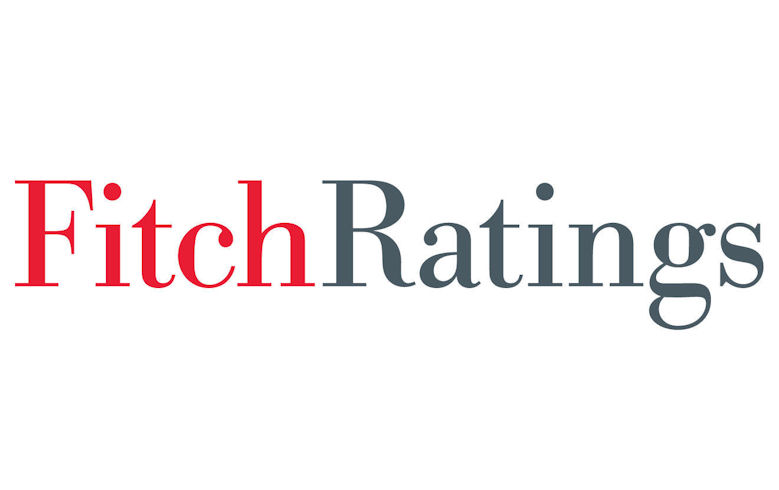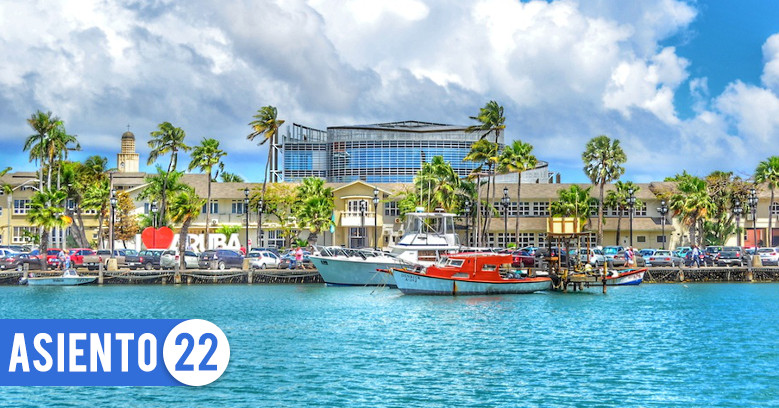Fitch Ratings ta afirma Aruba na BBB- cu perspectiva stabiel

Segun Fitch Ratings, riesgonan y desaroyonan positivo y negativo ta balansa otro, manteniendo e rating di Aruba na BBB- cu un perspectiva stabiel.
Deficit
Fitch ta premira cu e deficit lo baha cu un (1) punto di porcentahe e aña aki, compara cu e deficit di 5,2% na 2014. Fitch ta considera e plan di Gabinete Mike Eman pa yega na un presupuesto balansa na 2018 ‘ambicioso’. Mientras cu ta premira cu e deficit presupuestario lo baha, Fitch no ta kere cu Gobierno lo logra e meta di un ‘balanced budget’ na 2018.
Economia
Fitch ta señala cu Aruba su economia ta depende hopi riba turismo, y ta considera posibilidadnan pa crecemento relativamente limita.
Fitch ta positivo pa cu turismo na Aruba. ‘Tourism revenue’ a crece cu 5,2%. Un caida den demanda domestico (importacion) ta balansa e crecemento den sector turistico, limitando e crecemento economico di pais Aruba. Fitch ta premira un crecemento economico di 2% pa 2015 y 2016. Pa yega na e rating di BBB-, Fitch a asumi cu economianan di Merca (USA) y Venezuela no lo experencia ‘shocks’ suficiente fuerte pa afecta turismo na Aruba.
Sosten di Hulanda
E confiansa di Fitch Ratings den Hulanda ta mustra di hunga un rol importante den Fitch su decision pa cu Aruba. Fitch ta referi na Aruba su relacion cu Hulanda y ta menciona cu Hulanda por influencia maneho di Gabinete Mike Eman. Como ehempel ta referi na e (no-)firmamento di presupuesto 2014. Fitch tambe ta menciona cu Gobierno ta tratando e tema di un rol pa Cft den supervisa presupuestonan di pais Aruba, y e ehecucion di e presupuestonan.
Den e articulo por lesa cu, pa yega na e rating, Fitch a asumi cu Aruba lo sigui conta riba e beneficionan di sosten amplio di Gobierno Hulandes. Tambe ta menciona cu un deterioro den e relacion institucional entre Aruba y Hulanda lo tin consecuencia negativo pa Aruba.
Lesa e publicacion completo di Fitch Ratings aki:
Fitch Affirms Aruba at 'BBB-'; Outlook Stable (29 Apr 2015)
Fitch Ratings-New York-29 April 2015: Fitch Ratings has affirmed Aruba's Long-term foreign and local currency IDRs at 'BBB-'. Fitch has also affirmed the issue ratings on Aruba's senior unsecured foreign and local currency bonds at 'BBB-'. The Rating Outlooks on the Long-term IDRs are Stable. Fitch has affirmed the Country Ceiling at 'BBB' and the Short-term foreign currency rating at 'F3'.
KEY RATING DRIVERS
An ambitious fiscal consolidation aims for a zero budget deficit by 2018 in an attempt to stabilise government debt, which topped 62% of GDP on a consolidated basis (and nearly 80% of GDP on a gross basis) in 2014. Fitch expects some deficit narrowing, but results are likely to fall short of the plan. The deficit will narrow by 1pp of GDP in 2015 compared with the underlying position in 2014 of 5.2% of GDP. The headline deficit reached 8.8% of GDP in 2014 as a result of a capital injection into the state pension fund, APFA, which added 3.6pp of GDP to the deficit. The consolidation strategy is skewed to the revenue side. Implementation risks will make targets difficult to achieve.
The consolidation strategy represents a change of tack from Prime Minister Mike Eman's first term, when the government attempted fiscal stimulus in order to combat shocks from the global economic recession and the closure of the oil refinery, which formed one of the pillars of Aruba's economy.
As a member of the Kingdom of the Netherlands with separate status, Aruba benefits from strong institutions. The Dutch authorities can exercise influence over policy, as shown in 2014, when the governor vetoed Aruba's budget and insisted that it was examined by the CFT (the College Financieel Toezicht, or Board of Financial Supervision, based in Curacao) before being enacted. Aruba and the Dutch authorities are discussing a statutory role for the CFT in overseeing the budget and its implementation, something the Aruban government has resisted until now. The 2014 budget was passed in December 2014 and the 2015 budget will shortly be debated in parliament.
The government enacted a pension reform in 2014, addressing challenges posed by population ageing and improving the long-term sustainability of the public finances. It also levied a new tax that will help the finances of the state health system, the AZV. However, this and other planned tax rises have curbed household demand.
The economy is highly dependent on tourism and the potential growth rate is relatively low. Real GDP grew just 1.1% in 2014, as a strong tourism performance was balanced by shrinking domestic demand. Fitch expects growth of around 2% in 2015 and 2016, in line with Central Bank and Finance Ministry forecasts but below the 'BBB' median of 3.2%. The closure of the refinery has triggered a search for other sectors to supplement tourism, including logistics and green technology. The government is seeking private investment in these fields to complement public infrastructure investment.
The current account deficit (CAD) narrowed substantially in 2014 to 6.6% of GDP, from 12.7% of GDP in 2013. Tourism revenue, the biggest source of hard currency, grew 5.3% year on year, while imports fell. Income debits, including profit remittances, declined. The net external debt position is deteriorating as Aruba has become partly reliant on external borrowing to finance the CAD and the fiscal deficit.
Fitch expects a further narrowing in the CAD to 5% of GDP in 2015, with some help from lower oil prices. A prolonged hiatus in government borrowing could delay an important source of external financing. International reserves backing the peg of the AWG to the USD form a moderate cushion at around three months of current account payments, which compares unfavourably with the 5.3-month coverage in the 'BBB' category.
RATING SENSITIVITIES
The Stable Outlook reflects Fitch's view that upside and downside risks to the rating are evenly balanced. The main risk factors that, individually or collectively, could trigger a rating action are:
Positive:
--Successful fiscal consolidation that results in decreasing budget deficits and public debt burden;
--Higher infrastructure execution and private investment leading to a sustained faster growth trajectory.
Negative:
--Fiscal deterioration leading to a further escalation in government indebtedness;
--Reductions in international reserves and emergence of financing constraints;
--Deterioration in the institutional relationship between Aruba and the Netherlands.
KEY ASSUMPTIONS
--Aruba will continue to benefit from broad support from the Dutch government due to its position as part of the Kingdom of the Netherlands;
--The U.S. and Venezuelan economies will avoid shocks severe enough to curtail tourist spending in Aruba.
www.fitchratings.com/creditdesk/press_releases/detail.cfm?pr_id=983843
Expresionnan haci den e articulo aki no necesariamente ta refleha opinion di ArenaPoliti.co



